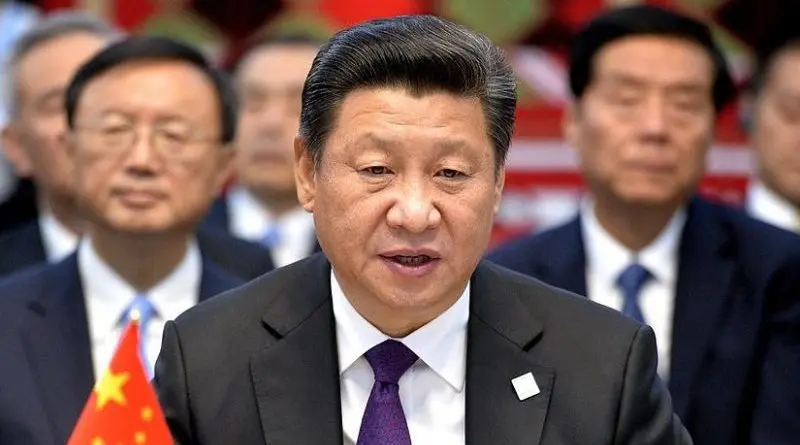Learning From Chinese Model: Power And Security Through Economic Rise – OpEd
Foreign policy is carefully crafted course of action or inaction by the foreign policy making elite for positioning the country in such position to exploit the current and brewing international environment for maximizing the national interest of the country.
Keeping the country relevant to the international system best characterized to be in flux is ongoing challenge that foreign policy elite face. A.F.K. Organski in his book World Politics discussed the politics of rise and fall of world leader. The sublime factor that he identified for rise of state for power and prestige at world level was economic rise through industrialization. The most important element of national power but often downgraded during the Cold War rivalry between two blocks was economic power.
Modern China started as a country of secluded and downtrodden nation. Through reforms, opening up and integration with the international economy Chinese leaders starting from Deng Xiaoping made economic power the article of faith for Communist Party of China. Fast forward, China becomes the second largest economy of the world. Increased demand by the Chinese and expectations from comity of nations for increased Chinese role in international politics is consequence of journey on the road of economic development.
Ascension of China in international politics has created ripples receiving mixed response across the world. The Chinese economic model and foreign economic interaction centered on the principles of win-win and no political interference approach are very attractive especially for developing countries that suffered one way or other at the hands of existing hegemon of the international system. The de facto hierarchy structured by the hegemon is based on rewards that the leader can and does offer to those who fall in line. The confluence of national interest and regional and geopolitical alignments in the 21st century is overwhelmingly going to be on the economic dictates.
Stark discontinuity and restructuring of trade policies as touted by Trump administration will be such a luxury that will be self-inflicted damage for American leadership and power in the world. Much feared restriction of benefits of world economic order underlined by free trade would force strategic recalculation in many countries benefiting from US led world economic order. The message that Chinese president Xi Jinping delivered the platform of World Economic Forum in Davos to the world economic and financial community has strong overtures about economic and political role China is going to play. The rise of China is direct consequence of opening up, globalization and free trade led by USA.
Xi Jinping has delivered a message loud and clear that China does and will own globalization and if need be as a result of inward US policies, China will perform increased leadership role for steering anchoring the ship of global economy out of troubled waters. Abrupt and rash decisions on part of Donald Trump to withdraw the US form trans Pacific Partnership instead of renegotiating unfavorable terms has give strategic opportunity to China for exercising the power of purse more assertively. The US is the reigning hegemon and will continue to play dominate role in world economic and political affairs in the near future, but China is destined to lead the world in the end. Fear about forceful and fundamental restructuring of western led international order are addressed to certain extent, at least in economic domain that China will own and play due role for promotion of globalization and equitable liberal international order.
The Chinese leader again reiterated long standing Chinese demand for more inclusive globalization, especially for developing world and restructuring of international institutions, especially those assigned the of defining rules of the trade game be more open and reflective of today’s economic realities.
The detractors, who argue about isolation of Pakistan, fail to appreciate the strategic move that Pakistan has made in the form of CPEC to be centre of Chinese designs to exploit geography for economic gains. The lesson for ruling elite of Pakistan that can be drawn from Xi’s speech is survival of Pakistan and expenditures on hard power are dependent on putting economic house in order. Xi highlighted the singular strategy for increasing power of country explaining the gates on the road of economic development can be unlocked through investing in the people, the real asset: “From the historical perspective, economic globalization resulted from growing social productivity, and is a natural outcome of scientific and technological progress”. Investment in people led to economic development that is multiplying, diplomatic, political and military power of China.
The military modernization program initiated by Narendra Modi and his predecessor is mere conversion of economic power for expanding military muscle. Indian expansionist and hegemonic polices are forcing Pakistan to take requisite measures for her defence especially through technological strides in different conventional and nuclear warheads delivery systems. Survival through robust and sufficient hard power is dependent on economic base of the country. Investing in people, the real asset of the country, for industrial development of the country should be made part of national security discourse.
*The writer is Research Associate at Strategic Vision Institute, a think-tank based in Islamabad.


Adil excellent job…. may God give u more success